AESOP. Vita & fabellae Aesopi cum interpretatione Latina ... Gabriae Fabellae tres & quadraginta ... Phurnutus seu, ut alii, Curnutus De natura deorum. Palaephatus de non credendis historiis. Heraclides Ponticus de allegoriis apud Homerum. Ori Apollinis Niliacihieroglyphica. Collectio proverbiorum Tarrhaei, e Didymi, item eorum, quae apud Sudam aliosque habentur ... Ex Aphthonii exsercitamentis de Fabula ... De fabula ex imaginibus Philostrati ... Ex Hermogenis exercitamentis De fabula Prisciano interprete. Apologus Aesopi de Cassita apud Gellium
Venice, Aldus Manutius., 1505.Folio (281 x 178mm). Text of Aesop and Gabrias in Greek and Latin, the others in Greek. Aldine anchor on title and verso of final leaf. Late 18th-century diced russia with gilt crest of Sir Richard Colt Hoare on spine, gilt tooling on covers and gilt edges. Neat marginal repair to wormhole in last three leaves, occasional light spotting and soiling, extremities lightly rubbed, spine neatly restored, overall a very fine copy from the libraries of Sir Richard Colt Hoare (1758-1838; his crest on spine, Stourhead sale 1883, lot 164) — W.R. Jeudwine (bookplate; sale Bloomsbury 18 September 1984, lot 30) — Helmut Friedlaender (booklabel; sale Christie's, 24 November 1993, lot 92) — Livio Ambrogio (bookplate).
First and only Aldine edition of Aesopus' Fables, both in Greek and Latin, in an heterogeneous compilation including two fable collections (one in prose, attributed to Aesop, one in verse, attributed to Gabrias, i.e. Babrius), a biography of Aesop by the Byzantine scholar Maximus Planudes, some short treatises on the interpretation of myths and the genre of the fabula, and a collection of proverbs. ‘This edition may be considered among the rarer and more beautiful productions of the Aldine press.' (Frognall Dibdin). Aesopus' Fables are here increased in number in comparison to the editio princeps and are provided with a new Latin translation by Aldus, which would have enjoyed great fortune in the decades following its appearance. A special mention should be given also to two of the seven works being published here for the first time, the poetic fables erroneously attributed to Gabrias and Horapollo's Hieroglyphica, the only systematic essay on the interpretation of Aegyptian hieroglyphics to survive in its entirety from Classical Antiquity. In producing this edition, Aldus was confronted with the problem of putting together the Greek text and the Latin translation and with the resulting problem of the numeration of pages and leaves. The Greek text is thus numerated from page 17 to page 142 (with the only exception of pages 129-130), while the Latin translation presents no numeration at all and pages 142- 173 present a numeration in columns. Aldus was not, apparently, interested in editing Aesopus' Fables as an indipendent text; rather, the edition was intended as an anthology of poetic forms considered useful for grammar school exercise. In particular, by connecting the animal fables with tales on myths and anthropomorphic gods, he provided his reader with a refined linguistic and thematic inventory, susceptible to undergoing a reuse in the field of rhetoric. “Aldus' edition of Aesop is essentially a collection of ‘fabulae' (in the rhetorical definition of implausible narratives) and their interpretations; it closely corresponds to the forms recommended by Quintilian for the grammar school, especially in that it begins with the fables and ends with the proverbs” (W.P. Weaver, Untutored Lines. The Making of the English Epyllion, Edinburgh 2012, p. 50).
Adams A-278; Ahmanson-Murphy 93; Renouard Alde, 49-50.
Other Books
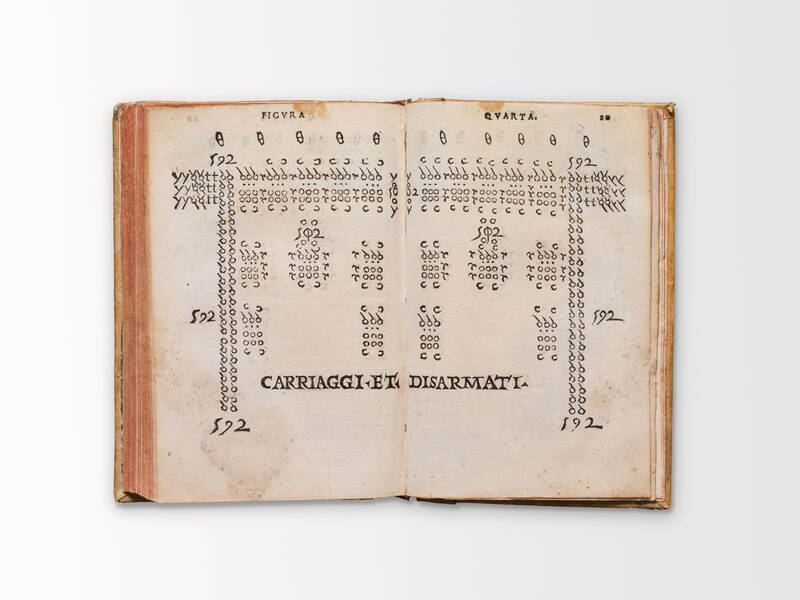
MACHIAVELLI, Niccolò
Libro della Arte della guerra di Niccolò Machiavegli cittadino et segretario fiorentino.
SOLD OUT![Trattato della natura de’ cibi et del bere [...] nel quale non solo tutte le virtù, & i vitij di quelli minutamente si palesano; ma anco i rimedij per correggere i loro difetti copiosamente s’insegnano. Trattato della natura de’ cibi et del bere [...] nel quale non solo tutte le virtù, & i vitij di quelli minutamente si palesano; ma anco i rimedij per correggere i loro difetti copiosamente s’insegnano.](https://www.medariquier.com/typo3temp/pics/d4e0248596.jpeg)
PISANELLI, Baldassarre
Trattato della natura de’ cibi et del bere [...] nel quale non solo tutte le virtù, & i vitij di quelli minutamente si palesano; ma anco i rimedij...
€ 9.500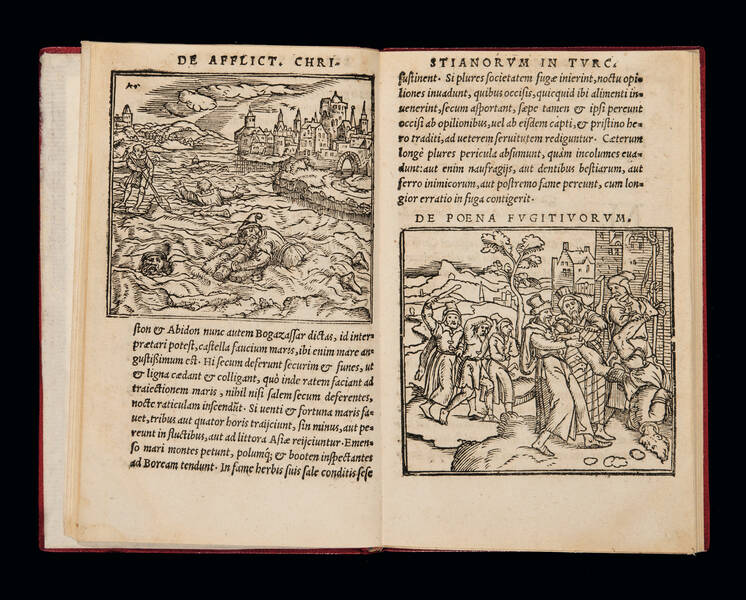
GEORGEVIC, Bartolomej
De afflictione, tam captivorum quam etiam sub Turcae tributo viventium christianorum.
SOLD OUT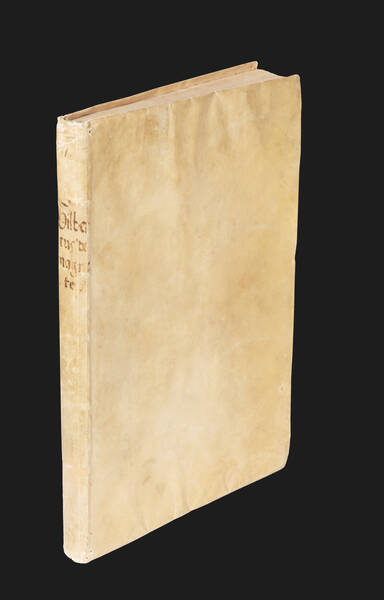
GILBERT, William
De magnete, magneticisque corporibus, et de magno magnete tellure; Physiologia nova, plurimis & argumentis, & experimentis demonstrata.
SOLD OUT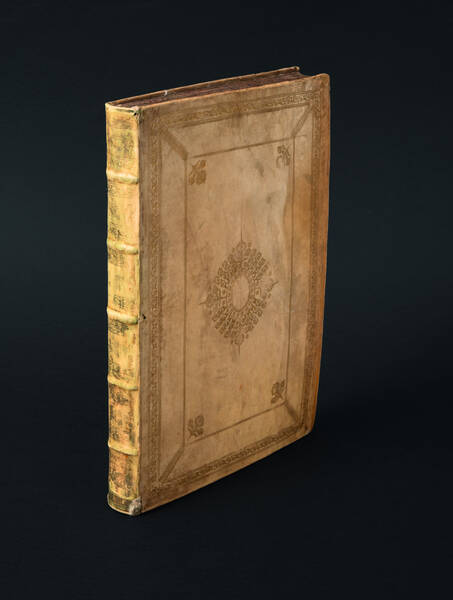
CONTILE, Luca
Ragionamento di Luca Contile sopra la proprietà delle imprese con le particolari de gli Academici Affidati et con le interpretationi et croniche.
€ 8.000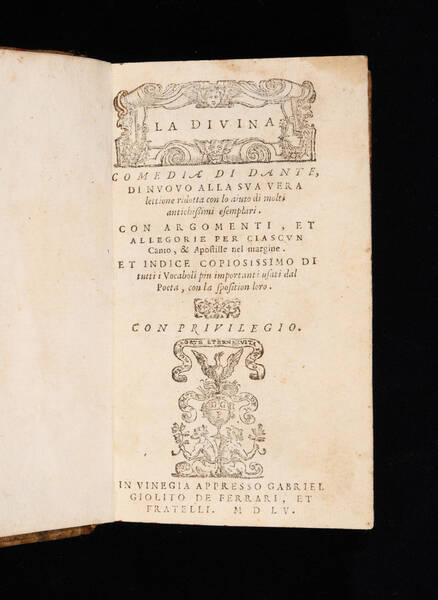
ALIGHIERI, DANTE
La Divina Comedia Di Dante, di nuouo alla sua vera lettione ridotta con loaiuto di molti antichissimi esemplari. Con argomenti, et allegorie per...
SOLD OUT![Azhār al-afkār fī ğawāhir al-ahğār by Ahmad ibn Yūsuf al-Tīfāšī […]Fior di pensieri sulle pietre preziose di Ahmed Teifascite, opera stampata nel suooriginale arabo, colla traduzione italiana appresso, e diverse note di AntonioRaineri Azhār al-afkār fī ğawāhir al-ahğār by Ahmad ibn Yūsuf al-Tīfāšī […]Fior di pensieri sulle pietre preziose di Ahmed Teifascite, opera stampata nel suooriginale arabo, colla traduzione italiana appresso, e diverse note di AntonioRaineri](https://www.medariquier.com/typo3temp/pics/4baf8d2ef4.jpg)
AHAMAD IBN YUSUF, al-Tayfãsî
Azhār al-afkār fī ğawāhir al-ahğār by Ahmad ibn Yūsuf al-Tīfāšī […] Fior di pensieri sulle pietre preziose di Ahmed Teifascite, opera stampata nel...
SOLD OUT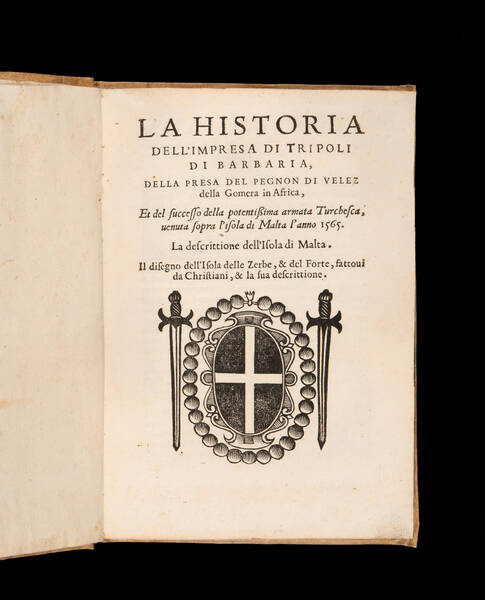
ULLOA, Alfonso de
La Historia dell'impresa di Tripoli di Barberia, della presa del Pegnon di Velez della Gomera in Africa, et del successo della potentissima armata...
€ 12.000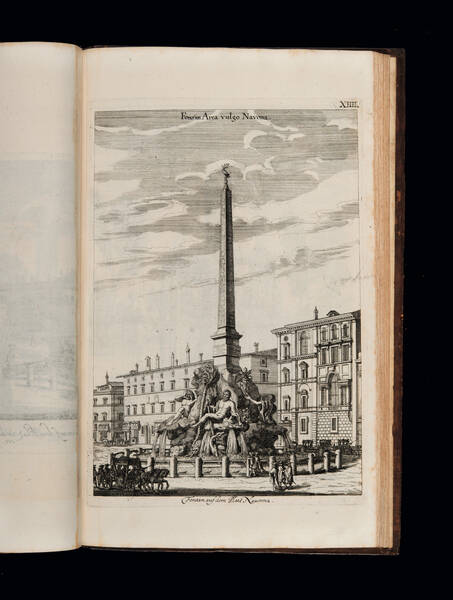
FALDA, Giovanni Battista
Romanorum fontinalia, sive nitidissimorum perenniumque, intra et extra, Urbem Romam, fontium vera, varia, et accurata delineatio.
SOLD OUT![Tragoediae septem cum commentariis. [Greek] Edited by Johannes Gregoropoulos Cretensis]. Tragoediae septem cum commentariis. [Greek] Edited by Johannes Gregoropoulos Cretensis].](https://www.medariquier.com/typo3temp/pics/a7f4ddada3.jpeg)
SOPHOCLES
Tragoediae septem cum commentariis. [Greek] Edited by Johannes Gregoropoulos Cretensis].
SOLD OUT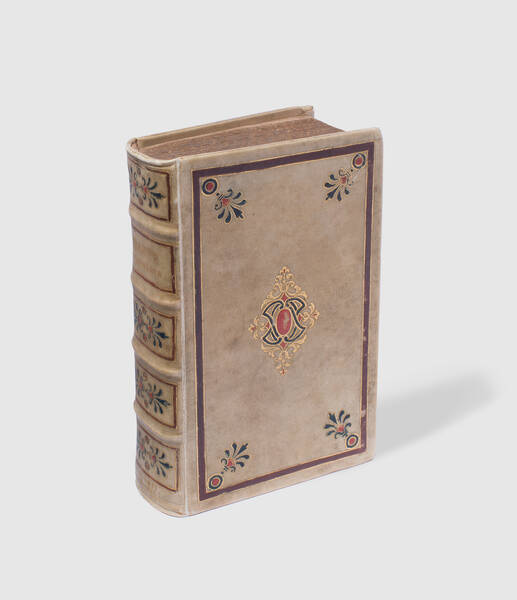
ALIGHIERI, Dante
Commedia di Dante insieme con vno dialogo circa el sito forma et misure dello Inferno.
SOLD OUT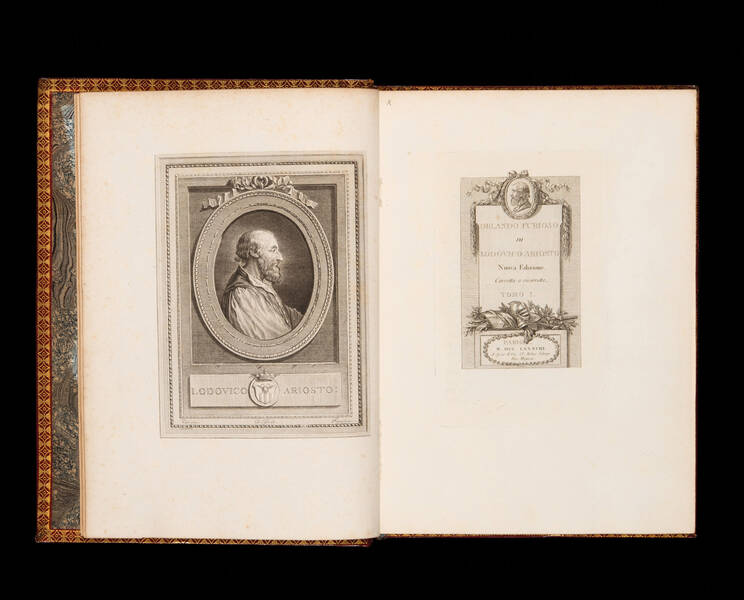
ARIOSTO, Ludovico
Orlando furioso di Ludovico Ariosto. Nuova Edizione Corretta e ricorretta.
€ 6.000MEDA RIQUIER rare books ltd.
4 Bury Street St James's
SW1Y 6AB London
Phone +44 (0) 7770457377
info@medariquier.com
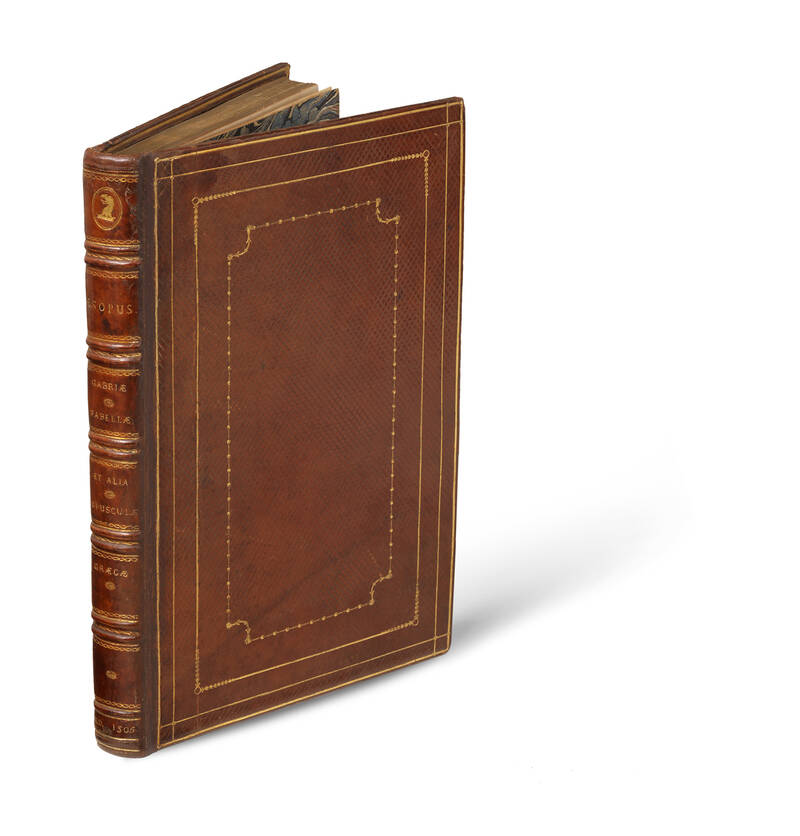
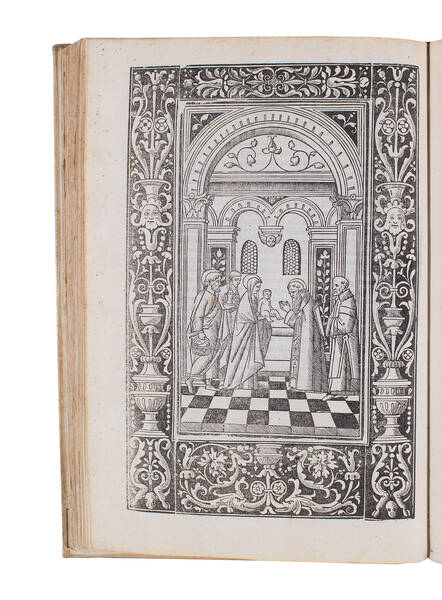
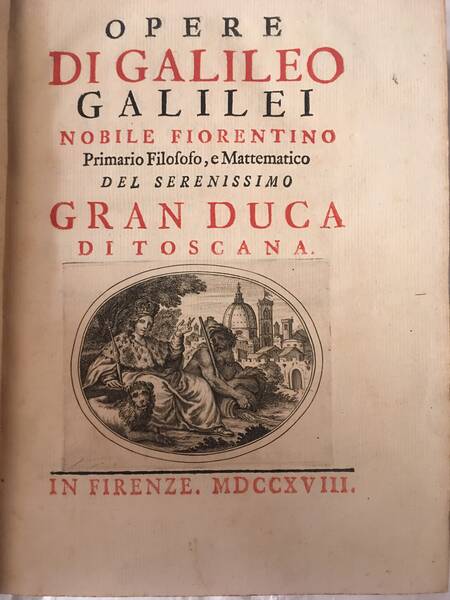
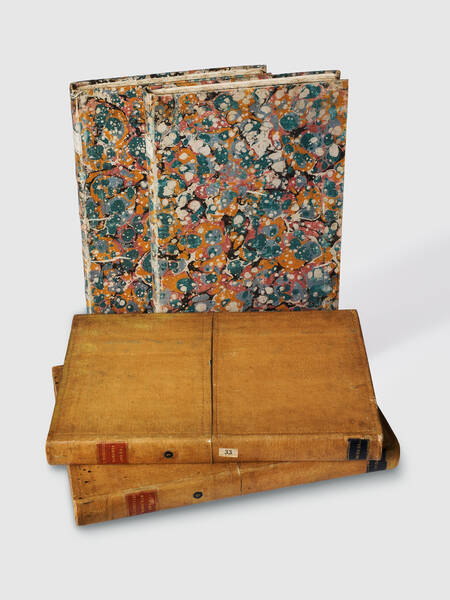
![[The Commentaries.] C. Julii Cæsaris Quae Extant. Accuratissimè cum Libris Editis & MSS optimis Collata, Recognita & Correcta. Accesserunt Annotationes Samuelis Clarke. S.T.P. Item Indices Locorum, Rerumque & Verborum Utilissimæ. Tabulis Æneis Ornata. [The Commentaries.] C. Julii Cæsaris Quae Extant. Accuratissimè cum Libris Editis & MSS optimis Collata, Recognita & Correcta. Accesserunt Annotationes Samuelis Clarke. S.T.P. Item Indices Locorum, Rerumque & Verborum Utilissimæ. Tabulis Æneis Ornata.](https://www.medariquier.com/typo3temp/pics/e0a4828aa4.jpeg)
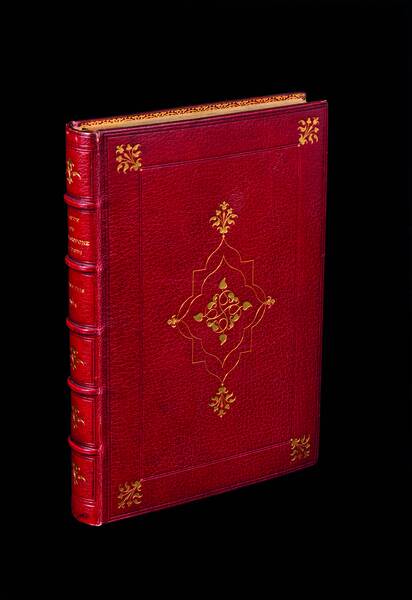
![[Life of the Virgin Mary] [Life of the Virgin Mary]](https://www.medariquier.com/typo3temp/pics/cbb0f7a08f.jpeg)